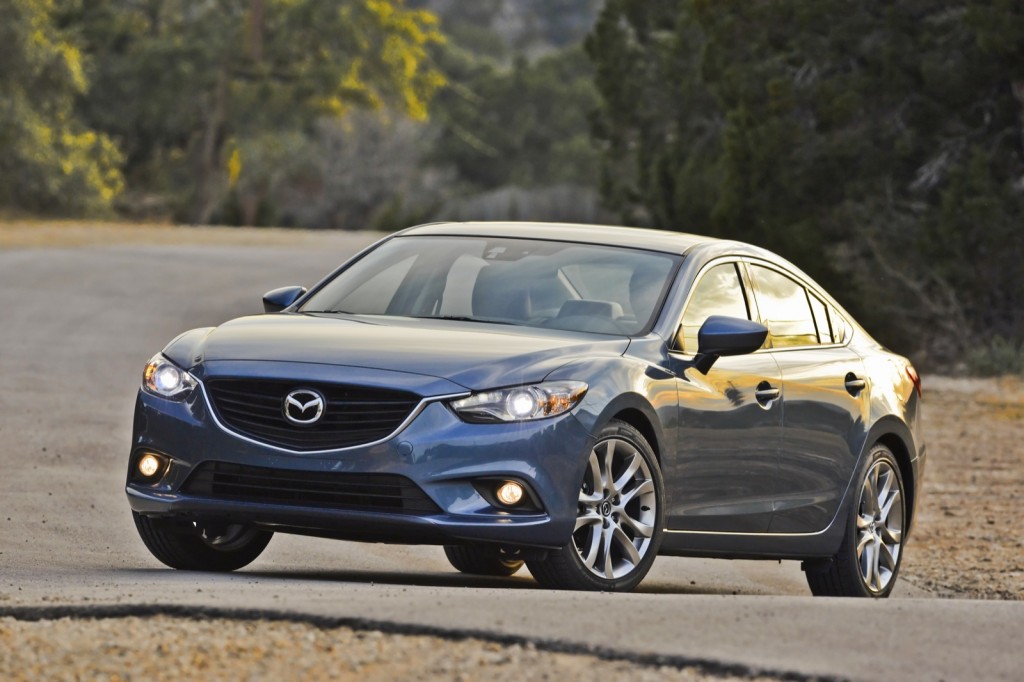2013 is an exciting time for diesel fans, with three particularly significant models all arriving this year.
The Chevrolet Cruze Diesel, Mazda Mazda6 Sky-D and Jeep Grand Cherokee Ecodiesel will all be on the radar of customers looking to mix performance with economy, and all will aim to replicate the success Volkswagen has had with its own diesel models.
But will pricing be the final sticking point for this new generation of diesels?
Our sister site The Car Connection suspects it might, with recent research suggesting price is still the biggest barrier when it comes to selling cars--no matter how many miles you're getting to every gallon.
Strong sales...
Diesel sales surged by 25 percent in 2012, and when you look at the vehicles on offer it isn't hard to see why.
Most offer considerably better economy than their gasoline counterparts, yet they're more refined than most people realise and performance is invariably strong too. Turbocharged diesels offer a large hit of torque from relatively low revs, meaning you can extract much of their potential with very little effort.
This low-down performance also helps with fuel efficiency at highway speeds, negating the need for frequent gearchanges and allowing the car to sit at low revs while doing higher speeds.
It isn't unusual for drivers of diesels to exceed the official EPA fuel figures for this very reason--something prevalent in Volkswagen's increasingly large diesel range.
...but pricing is important
Alexander Edwards from research firm Strategic Vision believes pricing is still a dominant factor in purchase decisions--along with other factors like styling.
That means diesels have to prove they can offer more than just good gas mileage and an eco-friendly image.
“Effectively, everyone out there is preaching MPG and environmental friendliness, and putting it in their ads and trying to sell it, and the truth of it is nothing is happening because the customer still has one barrier they’re not willing to get over, which is the cost of doing business for an alternate powertrain vehicle,” explains Edwards.
“Is it going to have a real impact in their purchase decision? For five or ten percent of them, it absolutely will. For the rest, it will, but it will be in a melting pot of issues that are often significantly more important.”
So far, Volkswagen has judged the pricing just right--typically, around $1,500 more than the equivalent gasoline version. Customers are happy to pay for the extra MPG and performance benefits.

2014 Mazda Mazda6
Whether others can replicate this success is a different matter.
The Chevy Cruze diesel, at $25,695, is several thousand dollars more than gasoline Cruzes (and more expensive than the Jetta TDI). Edwards suspects this may hinder sales, particularly given its positioning above the strong-selling Jetta.
Mazda is currently an unknown--pricing hasn't yet been revealed, but Mazda is expected to position it as a sportier model than its gasoline counterparts. Meanwhile, Jeep's Grand Cherokee Ecodiesel will be around $2,300 more than V-8 models on upper trims--potentially enough to appeal on improved economy alone.
While Volkswagen has cultivated an image around its TDI badge, other carmakers are yet to develop that loyalty for diesel, and may not see instant success.
Factor in the occasionally extortionate price of filling up Diesel Emission Fluid, or 'AdBlue', and customers will have to make sure the payback will really be as high as the MPG figures make it look.
As with hybrids and electric cars though, it may be as simple as getting bums on seats for people to warm to the idea of a sporty, refined diesel. Make people want the product, and the price will become less of an issue.
For a more in-depth look at the diesel conundrum, head over to our sister site, The Car Connection.
______________________________________________













